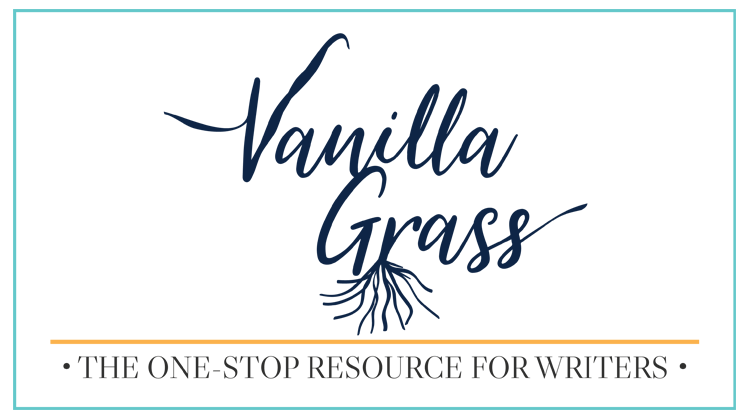
For even more resources, be sure to subscribe!
I want everything! Free Downloads! Graph my novel!Writing Resources
Vanilla Grass Writing Resources is where we keep all the links to posts and tools we think will be of service to you as a writer!

Time Managment
Resources to help you write faster, more efficiently, and when you have time.
Read More

Conferences and Events
An up-to-date calendar of all the writing events we could possibly find so you can grow your community.
Read More

Contests
For those looking to test their writing skills and start collecting prizes.
Read More

Outlining and Story Structure
Everything you need to outline, plot, and structure your novel so you can get writing.
Read More

Writing Communities
Resources to help writers connect with other writers. Because it’s more fun that way.
Read More

Writing Basics
Everything from grammar to storyboarding to formatting. If you’re just starting out or need a refresher. This one’s for you.
Read More

Writing Prompts
Resources for writing inspira
tion.
Read More

Writing Software
In case the pad of paper under your pillowcase isn’t quite cutting it.
Read More

Publishing
The writing resources you need to find agents, write awesome queries and get published traditionally or by yourself.
Read More
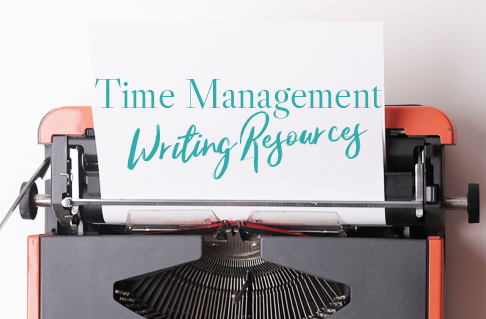
Ever sat down to write and produced nothing? Or went the opposite way and had a milion things you wanted to write down but didn’t have the time? Check out these awesome resources on improving word count, sneaking time to write, and flexing those writing discipline muscles.
Time Management Productivity Self-Discipline Time ManagementAmazing blog posts to help manage your time better so you can get writing:
- Our own vanillgrass.com time-management blog post
- This smart article by The Creativity Post for basic time management tips.
- This article on how outlining saves writing time.
- Or for a list of more time management apps then you could ever possibly try, check out My Hours
- You can also check out our free downloads page for some time management handouts!
If you’re looking to make better use of your time, check out these writing resources below:
- One of the best places to start is Rachel Aaron’s 2K to 10K book.
- You should also invest some time in improving your typing skills.
- Or investing in a good voice program like the Dragon Speech product from Nuance.
Self-Discipline
For some simple, everyday steps you can take toward improved self-discipline in your writing, check these out!
- This Forbes article about self-discipline includes rewarding yourself!
- Or, take a look at this article that talks about the benefits of writing daily and how to get in the habit.
- Science knows best, and this Time post on breaking bad habits will help you start turning bad habits into good ones!
Self-Discipline is Sitting Down to WRite, Even when you don’t want to.
The number one writing resource is actually yourself! Check out this youtube video on how to build and harness self-discipline so you can reach your writing goals!
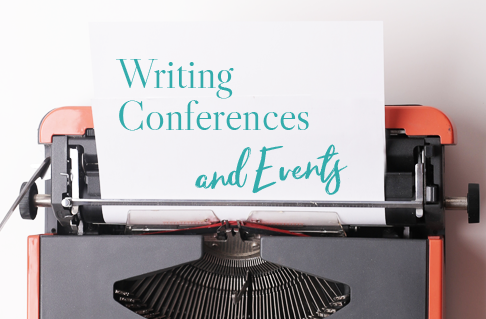
We do our best to keep our Writing Events Calendar up-to-date with every conference, workshop, and writing event we can find! Take a look at some examples of writing conferences and events below, or check out our calendar for up-to-date lists and even more!
[rhc_upcoming_events template=’widget_upcoming_events.php’ horizon=’end’ number=’5′ date_format=’dddd MMMM d, yyyy’ time_format=’HH:mm’ feed=’0′ showimage-‘1′ post_type=’events’ taxonomy=”calendar” terms=””]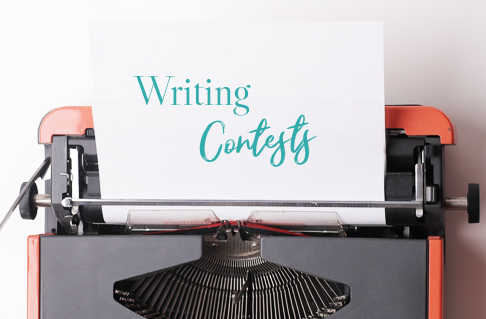
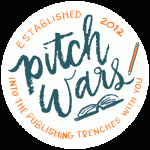
Once you’ve polished your writing, what better way to celebrate than to submit to a contest! Below is a list of some great writing contest resources. Be sure to check out our calendar as well. Most writing conferences usually include a first chapter, first 1K or first page contest. Good luck!
- Pitch Wars claims it’s more than just a contest. And we agree. Submit to try and win a writing mentorship!
- This website keeps a current list of poetry contests for those with a muse.
- Or take a look at this SmartBlogger list of amazing writing conferences, many with cash prizes!
- Into poetry and creative writing? This list will help you find contests, grants, and award opportunities for your work!
- And for writing contests for teens, check out this post.
- You should also check out your local and state government websites. Often times, they host their own writing contests which include prize money and some pretty cool local street cred. For an example, Oklahoma’s state government hosts an annual writing contest for youth.
- The Library of Congress also hosts a writing contest with a cash prize up to $2,000!
- If you’re looking for what Reedsy claims is the (probably) world’s largest writing contest, then check out this post for short stories. Prompts are constantly being added and anyone can enter. Pretty cool.
- This one is a recommendation sent in by Marisa, one of our readers! It’s a great resource for scholarships, contests, as well as basic tips for stepping into the publishing world and what career options there are for writers.
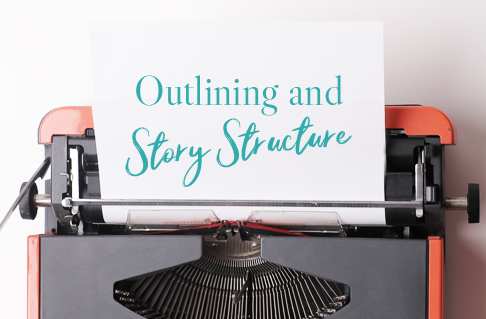
Kurt Vonnegut’s elegant and hilarious explanation of the shape of stories.
https://youtu.be/GOGru_4z1VcStory structure can make or break a novel. With this in mind, we’ve compiled a list of some fabulous resources so you can get your story on track.
- If you want a visual of how your story should be laid out, check out our very own Interactive Plot Graph and Calculator. It’s a writing resource you won’t want to miss out on!
- And if you want to know everything there is about story structure, check out this super comprehensive Story Structure Ultimate Guide with lots of graphs, examples, and a table of contents so you can skip ahead to what you need.
- Lisa Cron’s insightful book, Story Genius, uses science-based methods to help you structure a well-rounded story.
- Story Grid is another helpful book on how to set up a story readers will remember.
- Or if you’re looking for emotional structure, you can’t beat the thorough and effective process Donald Maas lays out in The Emotional Craft of Fiction.
- The Snow Flake Method of plotting a book can be helpful for beginners who would like to step through the process of novel writing piece by piece.
- Or if you’re looking for student writing resources, this post explains how to teach the art of storytelling to children.
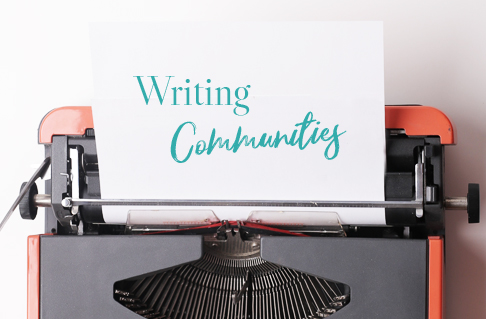
So, you’ve dabbled with your first few pages or maybe written your first novel and realized…
There’s so much I don’t know about the world of publishing and beta readers and writing conferences.
The best place to go for quick, effective, and relevant information is not the interent (gasp!).
Indeed, there’s a myth percolating out there that writing is a solitary and often lonely task. I challenge that with two words: Writing Community. There are writing groups, critique groups, conferences, beta reading groups and so many more resources out there to help writers improve their craft and make friends.
These writing communities are also where you’re going to find out about local writing events, contests and what’s worth going to and what you can skip. The veteran writers in the groups have incredibly useful tips for querying and publishing and not giving up. Because they’ve been there. They’ve already made the mistakes you want to avoid and founds avenues of success you want to drive on. I learned more in a few sessions of my writing group than I had in all the months since I started writing.
Why?
Because I didn’t have any clue what I was doing or what to search for. In light of this, my first recommendation for the next step in your writing journey: find a writing group!
See below for some excellent resources to get you started.
But first, check out this Writer’s Digest article on how to find the right critique group for you!
Regional Critique Groups Online Critique Groups Critique Group Etiquette Regional Critique GroupsMany of these groups are locally based and change often, so we’ll do our best to keep this list fresh.
Writing Groups for Regions:
- The Fellowship of Southern Writers (All Genres)
- Midwest Travel Writers Association – MTJA (Travel)
- New England Science Writers (Science, Technology, and Journalism)
- Northwest Science Writers Association (Science)
- Pacific Northwest Writers Association – PNWA (All Genres)
- Science Writers Association of the Rocky Mountains – SWARM (Science, Photography)
- Society of Southwestern Authors (All Genres)
- Southeastern Writers Association (All Genres)
- Women Writing the West (All Genres)
With the world shifting more and more online, the bucket of online writer groups you can draw from is immense. The good news? You can find a critique group that fits you and your writing style without having to compromise.
For a general list of online critique groups, you can start with this resource for writers.
Or you can check out this page of writing groups if you write kissing books.
Also, the Science Fiction and Fantasy Writers of America (SFWA) has a great resource page on online writing groups.
And if you want to jump into an established Horror writing community, look no further than the Horror Writers Association.
More into short stories? There’s no better place than Critters to get great (and sometimes brutally honest) feedback about your works from fellow short-story writers.
Critique Group EtiquetteYou don’t want to be the only one at your writing group with your elbows on the table, do you?
Okay, so most of your critique partners could care less where your elbows are. But there are some general standards and rules you should follow if you want to be a valued, helpful member of a critique group.
Here’s a list of the:
5 Basic Rules for Productive Critique Groups
- Be Specific – Telling a fellow writer that their work generally sucks is in NO WAY helpful. At all. Just don’t do it. Instead, be specific about what did and didn’t work for you.
- Bad example: Your intro was confusing.
- Good example: In your intro, the main character’s voice shifts POVs, which pulled me out the story.
- Be Positive – Good feedback is just as helpful as corrective feedback. More importantly, both of these types of feedback should be given in a positive way. The writing industry is brutal enough! We don’t need to tear each other down, too.
- Bad example: Your main characters are awkward and unbelievable and I would never read your book!
- Good example: I find the quirks of your main character intriguing. Could you expand on these a little more so we understand where the main character is coming from and how he fits into the world around him?
- Be Present – This should be a no brainer, and if you’re a good fit for your critique group, shouldn’t be an issue. But with today’s limitless access to phones, lap tops, and everything else, it can be easy to wander off while others are reading or sharing their work.
- Bad example: Editing your own work while someone else is sharing and giving generic feedback. Then, expecting their full attention on your turn.
- Good example: Listening/reading closely, making notes, and giving a thoughtful critique before sharing your own work.
- Be Polite – Or, more specifically, behave yourself and avoid critiquing other people’s critiques. I had a friend who left her old writing group because a man flipped a table at her and another woman! Not okay! While this may be an extreme example, it does drive the point home. Respect your fellow writers. To the second point, make sure your critiques are constructive thoughts not aggressive disagreements with someone else’s constructive thoughts.
- Bad example: Cutting off Writer Joe mid-critique and saying, “You’re wrong! She should leave everything the way it was, not hack it to pieces like you’re suggesting!”
- Good example: Waiting for Writer Joe to finish speaking and adding, “Joe makes some interesting points. For the record, that section of writing worked for me the way it was because of x, y, and z.”
- Be There (Show up!) – This last point is the easiest and most important! Don’t join a committed weakly writing group if you only plan to show up every once in a while. Try to find a critique group that better fits your time needs. If you’re just to busy to commit to a frequent or closed-membership group, look instead for a monthly group or one that has an open-forum where people can come and go as they please. Or try joining an online group, where you can show up from your house.
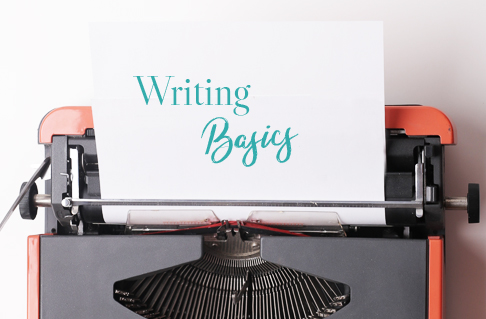
Quick Tips and Tricks for new writers!
- Use exclamation marks sparingly!!! Only one at a time and only a few TOTAL per book.
- Ellipses contain only three dots . . . No more. No less. And don’t use the auto correct option. It’s not universal and is hard to import.
- Dialogue and tags go in separate lines. Don’t add a bit of dialogue after a paragraph of action.
- Use page breaks between chapters.
- Use a 12 pt serif font, preferably Times New Roman. Serifs actually help the eye read the material more easily!
- Add page numbers (and name and book title) to the top or bottom right corner of your pages for easy reading.
- Double Space your drafts. It’s easier to read and allows room for your beta readers, agents, and editors to leave comments.
- Show don’t tell. This means describing how someone looks when they feel something instead of stating how they feel. (tears vs. sad)
- Use the proper names for body parts a majority of the time. (“eyes” vs. “shiny wet orbs” or “arm” vs. “appendage”) Your readers will thank you!
- Research your expected word count before you write and definitely before you submit. (Middle-grade novels should not be 200,000 word!)
- Genre tropes are okay. Even expected. Use them appropriately and don’t be too heavy-handed and you’ll find a receptive audience.
- For anything but omniscient 3rd person narrators, keep your voice tight. (“I thought I wanted it.” vs. “I wanted it.”)
- Outline your novel or use a plot graph. These tools can help novelists get a better idea of where they’re headed and how much work is required.
- Let others read your work! The likelihood of theft is minimal and you won’t be able to improve without outside input. That’s a promise!
- Conversely, don’t let too many people read your work. You don’t want too many writers behind the keyboard. Get a few trusted people to read your work, make adjustments based on what you feel is right and majority agreement on certain aspects. Discard the rest. The story is yours, after all.
- Use an editing software to help clean up your writing. This could be the one that comes with Microsoft Word or Google Docs, or Grammarly, an online text editor that kinda rocks.
- When you’re ready and your manuscript is complete, polished, and feeling pretty good, practice your pitches! On the mailman. The lady in front of you at the grocery store. Your friends and family. Whoever will listen. It will help you feel calm when the time comes to pitch your book to an agent or editor.
- Don’t stop writing! The hardest milestone in writing is finishing the first draft of your first book. Don’t stop to edit. Don’t stop to tweak. Don’t stop to wallow in a pit of despair. Finish it, crap or masterpiece. Then celebrate your amazing accomplishment!
- Be compassionate with yourself. Thousands of writers have been where you are, emotionally, physically, story plot-wise, whatever. Your failures are not unique. Which means you achieving success won’t be either. It’s a real life try-fail cycle. You’ll find your upswing. So be nice to yourself!
- And most importantly, call yourself a writer! Don’t let imposter syndrome get you down or wreck your confidence. If you take time to write and care about your craft. You’re a writer. Tell people that.
Quick Tip: Elevator Pitch

Elevator pitches are called so because they you should be able to say the entire thing in the time it takes to get from one floor to the next in an elevator. They should be short, sweet, and simple.
Elevator Pitch Example 1: Hero’s name wants nothing but desire, but when villain shows up with evil desire and/or weapon, hero must choose between original desire and new desire.
Or try:
Elevator Pitch Example 2: Book comp 1 meets book comp 2 in this story about how Hero’s name must sacrifice something sympathetic to save things they care about from villain who wants evil desire with evil weapon.
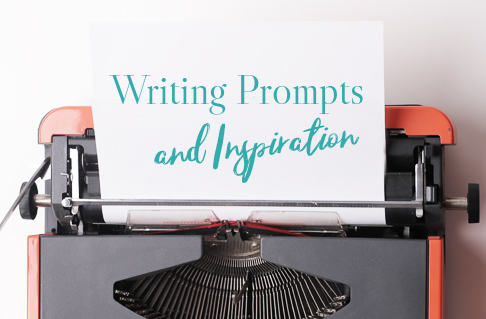
STuck? Check Out These resources for some writing inspiration!
First, check out our awesome post on overcoming writer’s block!
Need inspiration for characters? Check out Humans of New York on Instagram for some amazing people stories.
Looking for a setting or a disaster to strike? @awesome.earth on Instagram is an awe-inspiring source for pictures of nature.
Or do you need some plot ideas? This resource on conspiracy theories will get your writer mind churning.
You can also check out Merriam Webster’s Word of the Day and use it as a prompt for a warm-up writing exercise.
A lot of writers swear by their genre playlists to drive inspiration like this sweet love songs list for romance writers. You can make a list of music that reminds you of the genre you’re writing, or just compile your favorites and see what story comes out!
Fresh air and the outdoors are another great way to stir inspiration and clear your thoughts.
For another writing inspiration resource, read short stories to get the seeds for bigger ideas. Bonus: They take less time to read!
For some flash fiction writing prompts, check out #vss365 on twitter.
Or you can play with all the possibilities on the Vanilla Grass Plot Graph Calculator to generate some ideas.
Still need more ideas? Try people-watching, talking to children, trying new food, walking around a college campus or video arcade, or even taking a break. Try keeping a dream journal, or even painting.
Keep in mind that your lack of ideas may just be too many ideas! Sometimes, we love a bunch of plot twists and characters and settings and want to fit them all in the same story but just can’t make it work. Try simplifying. Bring your story back to one plot line and expand from there.
Another trick you can use to get those creative juices flowing? Picture your story a different way. Instead of writing it as a novel, write it as a poem. Or try scripting it as a play or structuring it like a graphic novel. Sometimes getting out of the prose and back into the idea of our story is all it takes to get writing again!
Most of all, keep at it! Write everyday. Make time for it. Steal time for it. And take time for it. Because inspiration will come.
Interested in a writing resource for the basics of writing poetry? Check out this simple step-by-step to get you started! (Thanks to our young reader, Amelia, for this recommendation!)
Subscribe

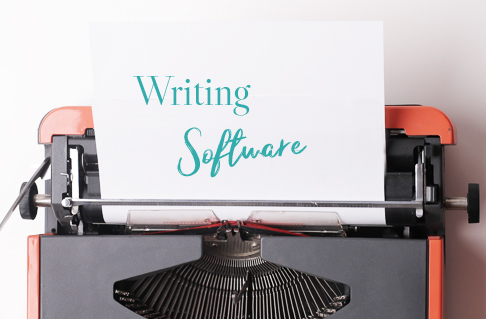
All it takes to write is putting pen to paper . . . but some awesome software never hurts.
To start your writing journey, you’ll need to type on something. Very few agents and editors will accept hand-written manuscripts and it’s not even an option if you want to self publish.
For this step, even the notepad application that comes free with your laptop or computer will work. But there are much better options out there. (Note: Some, but not all of the links in this section are affiliate to help us keep the blog running.)
- Some writers swear by the classic Microsoft Word for their updated features that allow for easy styling. A plus for self-publishing authors. Microsoft Word also allows for change tracking, which makes it super helpful when editing your and other writers’ works.
- If you’re looking for a way to share documents easily with others for feedback or collaborative works, Google Docs is a win, hands down. It’s super easy to share the link to your document or invite other authors to join and leave comments. There’s also a super-handy “suggesting” mode which allows you to make editing suggestions on the text without permanently altering it.
- For the more patient author who wants all the bells and whistles, a better choice might be Scrivener. This downloadable software comes with a learning curve, but offers the most flexibility. It’s a long-term investment that many writers feel is worth it ten times over. You can give each chapter it’s own section while keeping it connected to the whole book, leave notes, track changes, storyboard, and format your book for publishing!
- Their sister product, Scapple, is also another cool software program that allows for digital brainstorming. You can use it like you would a notepad and doodle your thoughts, or follow a more structured path. Either way, it’s a good way to get your thoughts down before you start writing or even as you go.
- And if you just love that notepad application or some other piece of software but want your grammar to be perfect, check out Grammarly. You can get simple editing done with its free version that will already save you a line editor and tons of time. And if you want suggestions on tone, word choice and more complex grammatical issues, try their paid version. Either way, it’s worth it!
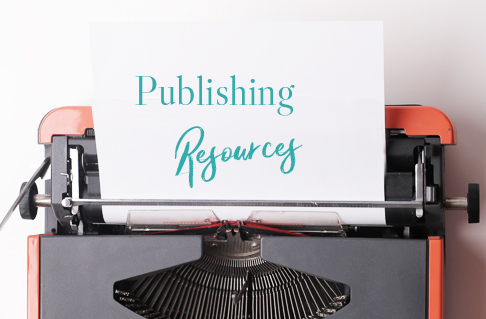
You’re almost there!
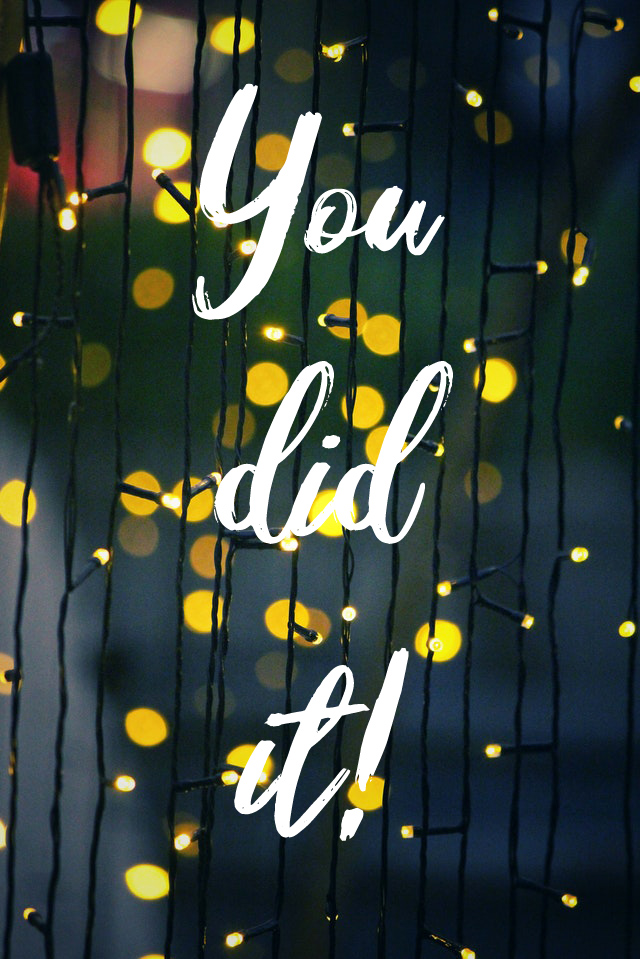
When you’re finally ready to submit
Your story is written, rewritten (maybe multiple times), edited, alpha read, beta read, developmentally edited, and line edited. It’s now polished, and magnificent.
What next? Use the following suggestions to help your book reach the acclaim it deserves.
Traditional Publishing
In order to get recognized at a traditional publishing house, you’ll need an agent. And to get an agent, you’ll need to pick a list of potential representatives, write a query, possibly write a synopsis, and submit and repeat.
Picking an agent – When it comes to picking an agent, the most important tip is to do your research. The agents you submit to need to want the genre of your book. Even though your manuscript is the best thing since sliced bread, a gluten free agent won’t appreciate it.
Thankfully, there are several free services to help you in your quest. Query Tracker is my go-to starting point. I narrow down my genre, click through agents, and when one feels like a good fit, I start the stalking process. Yes, it’s uncomfortable but necessary to track down each agent to find the most up-to-date information on their preferences.
I move on to the listed agency website and Twitter handle. If I’m still interested, I will check out The Official Manuscript Wish List and then Publisher’s Marketplace to see how many books this agent has sold in the genre I’m submitting.
Another great starting point is Agent Query.
Once you know who you’d love to work with, it’s time to query them.
The Query Letter – Before you can land your agent, you’ll need to learn how to write the best pitch for your story. These articles and websites might help:
Query Shark – What not to do when writing a query letter.
Jane Friedman’s Guide to Query Letters
How to Ensure 75% of Agents Will Request Your Material
or come back next month for the Vanilla Grass Query Guide.
Submit and Repeat –
Once you get that first query sent off, it’s time to wait and repeat. Not every agent will love your work so you’ll probably get rejections regardless, but sometimes in the query process you’ll realize that your query needs a bit more work, or maybe even the story itself. If you find yourself getting rejected over and over again, take heart. You’re part of the norm. And if you consider never writing a day again, turn to something you love and then come back to Vanilla Grass. Our articles will help you improve, laugh and cry with you along the way, and get you toward your end goal.
Subscribe
Have questions? Email us at vanillagrasswriting@gmail.com
